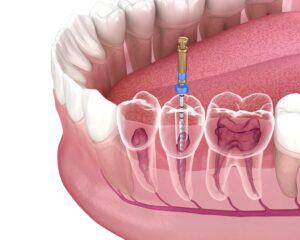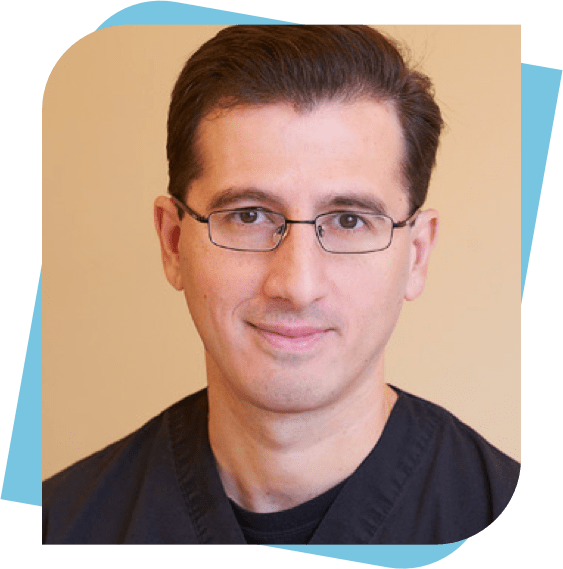
When you make an appointment with your dentist, you’re taking a step to ensure your oral health is as it should be. While your dental professional can do check-ups, they are also capable of more in-depth procedures, including restorative dentistry like fillings and root canals. The term restorative refers to the process of fixing teeth that are experiencing trauma, such as tooth decay, and strengthening them to function as they once did. You might be wondering, can you prevent a root canal? Or how to avoid getting one altogether. In this post, we’ll explore the details surrounding why you might need a root canal, and preventative methods you can incorporate into your everyday routine.
How do root canals occur?
The physical makeup of your tooth includes an area called the pulp, which can be found in the centre under the enamel and dentin. This space houses nerves, connective tissue, and blood vessels, acting as one of the most important parts of your tooth. It’s a vital component that needs to be protected since damage to this area may lead to the decay of that tooth, and by extension, impact your other teeth and jaw.
If you are experiencing ongoing tooth pain that cannot be resolved through over-the-counter treatments, it’s possible you need a root canal. A visit to your dentist will confirm your need for this procedure, and they can book you an appointment that works for your schedule, although sooner is better than later. During the root canal, your dentist will numb the area before grinding down the tooth. They will then carefully remove the pulp and any residual tissue within the tooth. To prevent further damage, the tooth will then be sealed with a filling or a crown.
Why do I need a root canal?
You might need a root canal for a few reasons. In any case, it is typically done because the pulp of your tooth is exposed and could easily become infected. Tooth decay, such as a cavity that has been untreated for some time may require a root canal procedure. An injured tooth that is chipped or cracked may also require this kind of restorative dentistry, or a tooth that has received too many dental procedures and is weak as a result. Ultimately, a root canal is done to save your tooth from falling out and potentially affecting other parts of your mouth.
How to avoid a root canal treatment?
There are ways to avoid getting a root canal, which all start with good oral health care. Once a tooth has been damaged, it likely needs the expertise of a dentist, but you can use preventative measures in an attempt to protect your teeth from needing restorative dentistry. These include:
Brushing twice daily and flossing once a day can help keep your teeth clean and healthy. These processes are essential for reducing the chance of tooth decay or bacterial problems.
Schedule semi-annual appointments with your dentist. These offer the chance to catch potential concerns before they worsen.
Steer clear of hard and crunchy foods that can be difficult for your teeth to chew, especially if you have weak teeth or have had dental restorations such as a filling.
If you grind your teeth at night, ensure you wear a mouthguard. This device can save your teeth from wearing down and exposing the pulp.
Consume acidic and sugary food and drink in moderation. The ingredients in these items can wear down your enamel and expose the dentin, causing plaque to form in crevices, leading to infections like cavities.
After a root canal, you should be able to smile, chew, and talk as you normally would. While this type of restorative dentistry is necessary for some, it can be prevented, and there are steps you can take to do so. If you are worried you need this procedure or are curious about more ways how you can avoid a root canal, reach out to our clinic.









